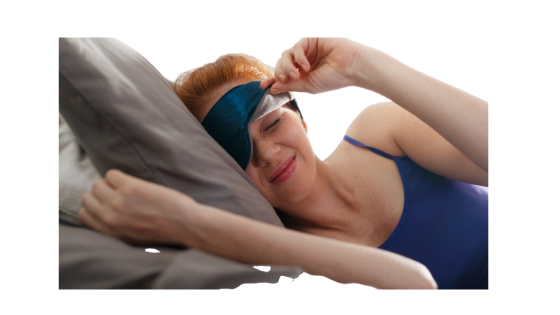Sleep Disorder Treatments and Weight Loss
HOW TO LOSE WEIGHT WITH SLEEP APNEA
If you have sleep apnea and you are overweight, a sleep apnea weight loss plan will definitely improve your sleep disorder and your overall health.
This article contains step-by-step instructions to lose weight if you have sleep apnea and weight problems.
As obesity is the most important risk factor for apnea episodes, sleep apnea weight loss would be expected to lead to an increase in upper airway dimensions and an improvement in sleep breathing disorder. Read more about the science behind this study! CPAP Weight Loss Study
The link between weight loss and degree of sleep apnea improvement is not always directly related, although it has been shown that a 1% change in weight is associated with a 3% change in AHI.
It has been shown that weight loss can improve sleep efficiency, decreased snoring and improved oxygenation of the blood.
In cases of dramatic weight loss by special dieting or surgery, OSA severity is improved and in some patients completely cured.
How to Lose Weight When You Have Sleep Apnea?
Countless clinical studies demonstrated that sleep apnea can be cured in patients with weight problems. However, losing weight when you barely can stay awake, is a very difficult task for any patient.
If you are a CPAP user, sleep apnea weight loss can be much easier than without effectively using a CPAP. The CPAP therapy improves your quality of sleep and your energy levels to the point that you can stick to exercise and diet regime that will result in effective weight loss.
The following Sleep Apnea Weight Loss Plan can be followed by anyone who has OSA and is overweight, with or without a CPAP machine.
Keep in mind though, using a CPAP machine will make this process much easier for you, and is an important part of success, not just weight loss but other underlining health issues! The International Institute of Sleep serving all of Florida will set you up with the best Sleep Apnea equipment in the market so don’t fear the mask! Weight loss is just an added benefit of proper Sleep Apnea Treatment!
Sleep Apnea Weight Loss Plan
Quick Nutrition Advice for OSA Patients
As several clinical studies demonstrated, even 10% of losing weight can have a drastic effect on improving your health.
So, with every pound you lose, your health and quality of life increases, and so your lifespan.
Here are the main rules that you should follow in order to lose weight:
- Don’t eat a lot before bedtime!
You don’t need too much energy when you go to sleep. Also, you’re not making the most healthier choices when you eat in the evening (I’m tempted to eat pizza and chocolate before bedtime, which gives me a lot of calories and energy).
When you eat a lot or in big portions close to bedtime, the food often stays longer in your stomach, causing acid reflux or GERD.
Try to focus on eating more calories and food earlier on and throughout the day, rather than in the evening.
Use smaller portions of food
For the new Sleep Apnea Weight Loss Plan you want to consume 3 small meals and two or three snacks per day, rather than eating 2 large meals.
This will help you keep your blood sugar under control. It will also prevent you from overeating on every meal.
Don’t try to be very restrictive with your meals by not eating all much throughout the day. Hunger will get you later on, and you will still gonna eat that big meal at the end of the day.
One way to resolve this problem is to eat less than usual in the evening (ex: a salad), and start the next morning with a good breakfast.
Tip: Don’t enter a restaurant starving. Have a snack one hour before going out to eat. This will prevent overeating in restaurants.
You need a healthy diet
Your main goal with your Sleep Apnea Weight Loss Diet: fewer calories, more nutrients. It means you want to mostly eat: vegetables, fresh fruit, unprocessed whole grains, lean proteins, and low fat and nonfat dairy products.
You can’t hide from Physical Exercises!
You want at least 30 minutes of exercise a day. You don’t need to go to the gym. You’ll probably give up in 2 months. And you don’t have a healthy body to keep you there for so long.
But you can walk 30 minutes each day, right? Use a pedometer to keep you motivated while you’re walking. This clever device will measure how far you walked or run, and store a record of your workout in a log.



Leave a Reply